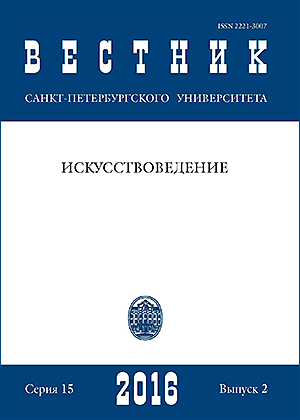“Robert le Diable” as a political metaphor of July monarchy
DOI:
https://doi.org/10.21638/11701/spbu15.2016.201Abstract
The paper is devoted to the political meaning of the opera Robert le Diable by G. Meyerbeer, E. Scribe, G. Delavigne in the context of social and political changes that followed the 1830 July Revolution. Robert le Diable was the first new staging in L’Académie royale de musique after administrative and economic reform. The new government of “illegitimate” King Louis-Philippe and a new administrative system of the Opera whose management was delegated to an entrepreneur were sharply criticized by the légitimistes. They argued that the Bourbons patronized the arts, therefore the Opera flourished, and the deposition of the legitimate King Charles X led to the fact that cultural institutions became effete. Consequently Orléaniste elite considered a luxury setting of Robert le Diable as a way to appease political opposition’s dissatisfaction with new regime. The opera became a success due to the novelty of the music, magnificence and showiness of performance. The authors of the opera and theater administration made every effort to avoid any inflammatory allusions in the text and in the staging. However, contemporaries interpreted it as a political metaphor reflecting the contradictions of the new government which followed both the monarchical and liberal principles.
Keywords:
“Robert le Diable”, opera, G. Meyerbeer, staging, success, July Revolution, July Monarchy, le Roi-Citoyen, Louis-Philippe, political metaphor
Downloads
References
Downloads
Published
How to Cite
Issue
Section
License
Articles of "Vestnik of Saint Petersburg University. Arts" are open access distributed under the terms of the License Agreement with Saint Petersburg State University, which permits to the authors unrestricted distribution and self-archiving free of charge.






